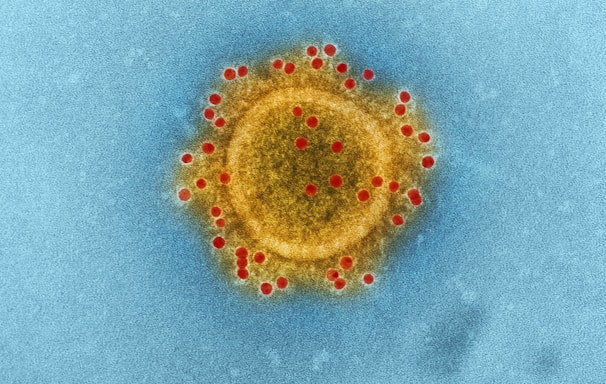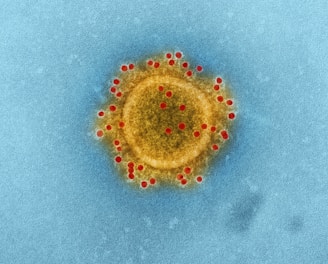Conservation Science Initiatives
At EcoAzul, we are dedicated to advancing conservation science—a vital field that combines the best of ecology, biology, and social science to safeguard our planet's natural resources and biodiversity. Conservation science plays a crucial role in understanding how to effectively protect, manage, and restore ecosystems while balancing human needs with environmental sustainability. Our initiatives aim to address critical environmental issues, promote biodiversity, and ensure sustainable futures for ecosystems worldwide. Join us as we work to make a meaningful impact through groundbreaking research and proactive conservation efforts.
Project X-Files: Ents of Coral Reefs
Lead Investigators - Jaaziel Garcia Hernandez
Our ongoing project, "Xestospongia muta: Linking Ecology and Systematics," delves into the critical role of X. muta, a foundational and indicator species vital to the health and biodiversity of coral reef ecosystems. This comprehensive study aims to enhance our understanding of how this essential sponge species contributes to ecological stability and supports a diverse range of marine life.
In addition, our initiative "OASIS for Biodiversity" explores the complex symbiotic interactions between species, focusing on the natural processes that maintain and enrich our reefs. Since its inception in 2012, this project has not only provided groundbreaking insights into coral reef dynamics but also actively contributes to the restoration and preservation of these ecosystems.
A key component of our efforts includes robust restoration activities for X. muta in La Parguera, Puerto Rico. These critical interventions aim to rebuild and sustain the reefs, ensuring their resilience against environmental stresses and preserving their biodiversity for future generations.


Know Thy Invaders: Hologenomic Strategies for Managing Puerto Rican Reef Invasives
Lead Investigator(s) - Daniel Toledo-Rodriguez, Jaaziel Garcia-Hernandez, Sahara Rios, Alex Veglia, Nikolaos Schizas
Our "Know Thy Invader" project addresses the challenge of invasive species in Puerto Rican waters, including the recent and notably resilient Xeniid coral of the Xeniidae family. Through our multidisciplinary hologenomic approach, we delve into the organismal biology, genetics, and microbiomes of these invaders. A holobiont refers to the host along with all its associated microbial communities, which together form a functional ecological unit. By studying these complex interactions, our research not only tracks the spread of these species across the Caribbean but also explores the key microbial members of their holobionts. Understanding these relationships is essential for uncovering what enables these species to thrive so effectively and assess their potential to introduce pathogens.
By uncovering the unique genetic and microbial traits that contribute to their invasive capabilities, we aim to develop precise, effective strategies for their removal and to prevent their spread. This critical research helps us devise interventions that mitigate the impact of these invasive species, thus protecting the ecological balance and preserving the rich biodiversity of Caribbean reef ecosystems.


EcoFish: Science-Driven Management of Recreational Fisheries
Leading Investigators - Alex Veglia, JoJo West (Rice University), Sahara Rios, Ramon Rivera Vicens, Nikoloas Schizas
The "EcoFish" project utilizes a multidisciplinary approach to enhance the sustainability of Puerto Rico's recreational fisheries. Through advanced hologenomic techniques, our research focuses on collecting vital biological, ecological, and toxicological data across various species, including the Mangrove Snapper (Lutjanus griseus).
Our methods encompass detailed analyses of morphology, dietary patterns, trophic levels, genetic diversity, and environmental contaminants such as microplastics. These studies help us understand the species' population dynamics and potential toxicological impacts, which are crucial for assessing health risks to both wildlife and humans.
This comprehensive data collection, from inshore mangroves to offshore reefs, supports the development of targeted, effective management strategies. "EcoFish" aims to inform conservation policies that safeguard the biodiversity and sustainability of Puerto Rico’s marine ecosystems, promoting a balance between ecological health and economic benefit.


EcoVir: Viral Tools for Reef Restoration
Leading Investigators - Alex Veglia
The EcoVir initiative is at the forefront of harnessing viral technology to enhance coral reef health and resilience. Our innovative approach focuses on understanding the complex roles viruses play within coral reef ecosystems. By exploring this microscopic world, EcoVir aims to develop advanced viral tools, including viral indicators, phage therapies for disease treatment, and beneficial viral cocktails or 'ProViotics', for both in-situ and land-based coral restoration facilities.
At the heart of this research is the identification and categorization of viruses associated with coral reefs—distinguishing the beneficial viruses that can support coral health, the harmful ones that contribute to disease, and those that play ambiguous roles. This knowledge allows us to tailor viral-based solutions specifically designed to bolster coral defenses, combat pathogens, and ultimately, restore and sustain coral reef ecosystems.
By leveraging the latest in virology and reef ecology, EcoVir not only seeks to mitigate the effects of coral diseases but also to revolutionize the way we restore and preserve these vital underwater habitats. This initiative promises to provide new tools for marine conservationists to heal and fortify coral reefs, ensuring their survival for future generations.


Exploring the genetic diversity of coral reef tunicates (Class: Ascidiacea), southwest Puerto Rico
Leading Investigators - Daniel Toledo
Ascidians (Phylum Chordata), commonly known as sea squirts, exhibit distinctive chordate features during their larval stage, including a notochord, dorsal nerve cord, pharyngeal slits, and a post-anal tail. Despite their diversity and global distribution with over 3,000 species, the abundance, diversity, and distribution of ascidians in Puerto Rican waters remain poorly understood. This study aims to employ a genetic barcoding approach to identify the tunicate fauna associated with the coral reefs within La Parguera Natural Reserve (LPNR). The generated genetic data will facilitate addressing evolutionary questions specific to the Ascidiacea class. Additionally, ecological observations of each sampled tunicate will be documented to enhance our understanding of intra- and inter-specific interactions, substrate colonization, predator-prey dynamics, and phenotypic variations.




